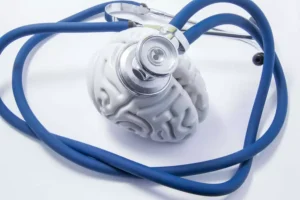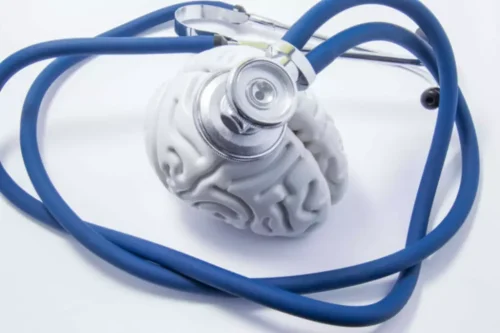Opposing effects of alcohol on the immune system

This article will explore the latest research on the impact of moderate alcohol intake on the immune system and compare it to the effects of alcohol abuse and abstinence. Frequent and heavy alcohol consumption can suppress the immune system, making the body vulnerable to viruses and infections. Alcohol misuse can cause short-term effects such as the common cold or gastrointestinal complications, but it can also lead to more serious conditions such as cancer, septicemia, or, liver disease. Alcohol potentially alters the monocytes and monocyte-derived dendritic cells’ (DCs’) inability to activate T cell response is a major factor in alcohol-related infectious diseases. Altered DCs produce more anti-inflammatory IL-10, and reduced IL-12 levels lead to the development of various infections 54.

Types of T Cells.
- It is characterized by the release of mediators of inflammatory reactions, such as cytokines and chemokines, as well as activation of the complement cascade.
- Under these conditions, a person’s risk of contracting these diseases heightens dramatically.
- Thus, mice that were chronically fed ethanol generated a weaker antibody response following vaccination with HCV compared with control mice (Encke and Wands 2000).
- Chronic alcohol consumption decreases the number of circulating T cells, increases the number of activated T cells, accelerates differentiation of T cells to a memory phenotype, and interferes with thymocyte development.
With the modern Western lifestyle presenting a multitude of challenges for your immune system (including stress, antibacterial cleansers, and exposure to antibiotics in food or medication), when you add on immune-unfriendly foods, you’ve got a recipe for feeling under the weather. Women are typically more vulnerable to inflammatory and autoimmune diseases than men, and men have a higher risk of infections than women. drinking lowers immune system Women are less vulnerable to infections because they have higher levels of estrogen during their pre-menopausal years, which helps the body boost the immune system and fight disease. Someone who drinks a large number of alcoholic beverages on one occasion or drinks frequently may experience hangover symptoms such as nausea, headache, and dehydration. However, alcohol can also weaken the immune system, cause serious health conditions and make the body more vulnerable to infections and viruses.
Sleep Disruption

Alcohol-induced ROS production leads to the activation of inflammation gene-specific NF-κB transcription factor and inflammasome signaling pathways 13,14. IL-18, a cytokine specific to inflammasomes, and caspase-1, one of the inflammasome components, were increased in the alcohol-treated rats, which led to increased inflammation in the injured brain tissue 15. Chronic alcohol consumption leads to cellular injuries, and constant inflammation leads the normal cells to turn cancerous.

Effects of short-term alcohol use
- Alcohol dehydrates you because it is a diuretic — meaning it flushes out fluids.
- Every glass chips away at your brain’s natural ability to manage those feelings.
- — Some research suggests no amount of alcohol is good for you, while other studies say moderate drinking may actually boost immune function more than teetotalling.
- Additionally, a 2020 review by Aston University discussed the potential for manufacturers to adapt beer recipes to boost its health-giving properties and reduce its negative effects.
- Finally, chronic alcohol exposure in utero interferes with normal T-cell and B-cell development, which may increase the risk of infections during both childhood and adulthood.
However, women who drink marijuana addiction more than two drinks on one occasion and men who drink more than three drinks on one occasion may experience more health complications due to their excessive alcohol consumption. Alcohol also causes the body to metabolize toxic chemicals and increase hormone levels. For example, an increase in estrogen can lead the body to develop breast cancer.
Effects on B-Cell Development
Alcohol intoxication, which inhibits the IL-17 cytokine production in T cells, helps establish bacterial infection; however, the addition of external IL-17 reverses the immune cell functions and clears the bacterial infection 63,64. In patients with ALD, there is reduced IgG and IgG1 B cell levels in the blood and impaired T cell-dependent B cell response as opposed to T cell-independent B cell response 65,66. Alcoholic-abusive individuals are more susceptible to influenza infection owing to an alternated inflammatory environment in the lungs along with decreased CD8 T cell counts as observed in chronic alcohol-fed mice 67. Alcoholic individuals are susceptible to infection owing to altered immune response. Pneumonia is one of the bacterial infections caused by the alcohol-altered immune response.

But that may not be true, or true only for light sippers (less than one drink a day). If you use more than that, cutting back or quitting may lower your blood pressure, levels of fat called triglycerides, and chances of heart failure. Just as animal companions can boost immunity, regular contact with friends, loved ones, family, and acquaintances can. Positive social experiences and real-life social contact can help ease chronic inflammation, the body’s natural immune response. And while it’s usually effective, everyone is susceptible to illnesses from time to time. However, there are things you can do to boost your immune system and better prepare your body to fight off illnesses, such as prioritizing a healthy diet, getting adequate sleep, and managing stress.

